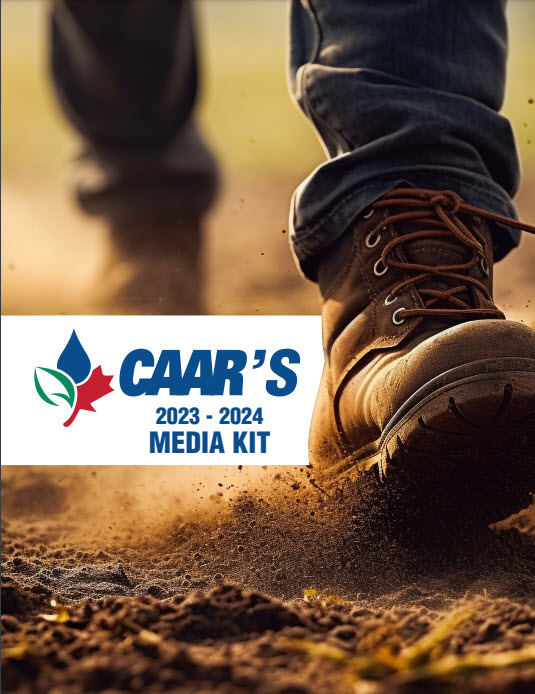Perhaps the most important presentation at the 2022 Virtual CAAR Conference; science and evidence-based data, timeliness, transparency, and importance of sharing explaining science in plain language were the key factors the MRL panel agreed upon at the conference.
MRL Challenges, Changes and Canadian Government were discussed by the panel.
The three-person panel included:
- Manon Bombardier, Assistant Deputy Minister, PMRA (Pest Management Regulatory Agency) Transformation for Health Canada providing the Federal Government stance;
- Providing viewpoints for their respective stakeholders:
- Gord Kurbis, Vice President of Trade Policy and Crop Protection at the Canada Grains Council;
- Terri Stewart, Executive Director, Chemistry at CropLife Canada
CAAR strongly believes Canada needs to continue to advocate internationally for MRL harmonization based on modern science, and not move away from the standards set internationally. Our sector depends on international trade and harmonized MRLs are key to facilitate export of Canadian agricultural commodities.
Bombardier outlined the government’s plans, known as its four pillars, to address transparency and public trust, discussing how the approach will involve engagement with stakeholders and build off the processes already at PMRA. She also said the PMRA will increase its access to and usage of real-world data.
Regarding concerns that the government is ignoring science-based data, Bombardier was adamant that her agency will not need to change the way it goes about its business, “and will continue with this (science-based decisions) strength.”
While she noted that some have questioned the government’s recent decision to pause MRL increases, Bombardier noted that “…science will continue to drive PMRA decisions.”
She agreed with the resolve that there must be both public trust and transparency with all of the government’s decisions, including MRL decisions, and that “the science-based data will help” strengthen its cause.
Canada Grain Council’s Kurbis noted: “Crop protection is getting more and more restrictive around the world.”
He pointed to the EU (European Union) as having moved away from a science-based approach to regulatory approvals for crop protection, which means that the MRLs needed for trade can move to zero tolerance.
“It’s great that the PMRA is keeping the firewall at 100% for the science-based approach,” stated Kurbis. Added CropLife Canada’s Stewart: “we support strengthening the science-based system - science provides growers with timely access to safe tools and markets around the world and assures the public that pesticides used are done so safely.”
Added CropLife Canada’s Stewart: “we support the increasing of oversight, and to build more of the science-based approach. Science helps assure the public that pesticides used are done so safely.”
Kurbis underlined that decisions on MRLs have an impact on the way agri-retailers do business, how farmers grow crops, and how the country as a whole is perceived internationally when trading commodities.
Said Kurbis re: crop prohibitions and global scrutiny: “It’s becoming increasingly complex as the EU moves away from the science-based firewall.
“We’ve seen from our international partners that how pesticides are regulated is becoming more complex,” said Kurbis. “Transparency measures should be carefully considered.”
What all three members of the panel did agree upon, is that yes:
- science- and evidenced-based data must always be the only source of information utilized to make informed decisions;
- transparency is extremely important, as is;
- consideration of real-world impacts and unintended consequences when developing new approaches, but;
- timely, plain language responses are also key in dispelling misinformation and explaining things to the media and to the public.
“We need to do a better job of explaining ourselves,” agreed Bombardier on behalf of the government. “We need to be able to explain science in a non-scientific way.”
She summed up: “Having this dialogue is key to our success. We want to engage with all Canadians.” “Your insight and collaboration will be key over the coming two years.”
Related Articles
- CCA once again offering a series of live online tutorials to help those taking CCA exam CCA is once again launching a series of live online tutorials to assist individuals seeking to write the CCA exam to be better prepared. Tom Jensen and Carol Holt will be the presenters. The next CCA exam date is...
- The 2024 CAAR Annual Conference CAAR has some exciting news to share regarding our upcoming annual conference – a gathering that has always been a highlight for our organization. First and foremost, mark your calendars with the new dates for our...
- CAAR invites members to listen to live webinar: Let’s Talk About Burnout Tune into Let’s Talk About Burnout, a live session on mental health from the Talk It Out video series, presented by Louise Sanders from the Stress Experts tonight at 6:00 pm MST. More information and session regis...
- CAAR Pro-Ag Investments Auction Fundraising Results CAAR is delighted to share that $57,250 was raised from the recent Pro-Ag Investment Auction. The Pro-Ag Investment Auction is held annually to support CAAR’s advocacy efforts. CAAR’s only fundraiser, the Pro-Ag a...
- Thanks for attending! 2023 CAAR Conference in Edmonton a success. After another successful CAAR Conference, we wanted to thank everyone who attended, provided auction donations, and helped sponsor the event. 2023 CAAR Conference, Chal...
 How to resolve AdBlock issue?
How to resolve AdBlock issue? 


Join the discussion...
You must be logged in as a CAAR member to comment.
Report
My comments